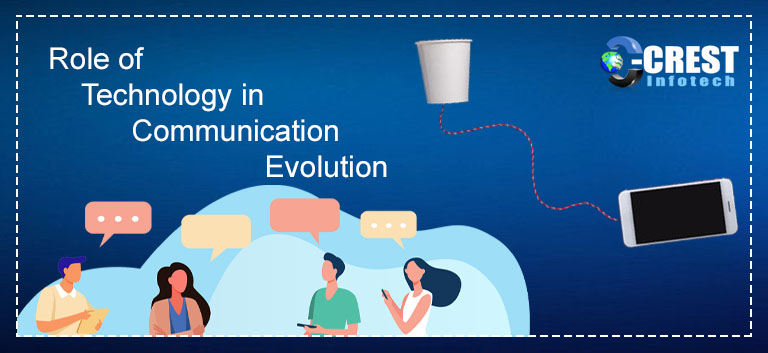For as long as humans have been on this planet, we have developed ways of communication that have continually changed how we communicate with each other, from smoke signals and messenger pigeons to the telephone and email. When the electric telegraph was invented, one of the greatest advances in communication came in 1831. While the post existed before this date as a means of communication, it was electrical engineering that had a ground breaking effect in the 19th century.
Now, nearly all other modes of communication, especially in business, have been superseded by digital methods. I can’t remember the last time I wrote a letter by hand, rather than an email at work, and even my signature these days is digital. It is also an uncommon thing to pick up the phone, instead of FaceTime, Zoom or joining a Google Hangout.
The Telephone
The telephone was invented in 1849 and it was an important item for homes and offices within 50 years, but tethering affected the device’s versatility and privacy. The cell phone came in, then. Motorola developed a cell phone in 1973 that kick-started a chain of inventions that forever changed communication.
Early smartphones were mainly aimed at the enterprise market, bridging the gap between phones and personal digital assistants (PDAs), but they were voluminous and had short battery lives. Nokia launched phones with QWERTY keyboards in 1996 and most Android phones were touchscreen-only by 2010.
Steve Jobs released the world’s first iPhone in 2007 and Apple paved the way for new mobile aesthetics. “Flip phones” and phones with a split keyboard and screen were the standard prior to the iPhone. A year later, a central application store was launched with an initial 500 downloadable ‘apps’. The Apple App Store currently has over two million applications available.
The Internet
The Internet has had a transformative impact on communication since the mid-1990s, including the emergence of near-instant electronic mail communication, instant messaging, telephone calls via Voice over Internet Protocol (VoIP), two-way interactive video calls, discussion forums, blogs, and social networking.
The internet has made contact simpler and quicker, helping us to keep in touch with individuals regardless of time and place. The speed of business has been increased and the prospects inside the enterprise space have been broadened. People are able to find their voice and express themselves through social media, YouTube, and memes. The web has linked and broken us like never before.
The Email
Email was introduced to the world in 1991 as a by-product of the World Wide Web (although it had been working years before) and it has changed our lives tremendously, whether it depends on your point of view for better or worse. Educational programmers and the military who used email to share information were the first users of the messaging network.
Although email is invaluable and without it we can’t imagine a planet, there are instruments that are springing up that give email a run for its money. For example, the company that was launched in 2014, Take slack (an acronym for ‘Searchable Log of All Correspondence and Knowledge’), has often been identified as an email killer.
However, while slack has become the world’s most popular chat and productivity tool, email is still going strong, used by 10 million people every day. Slack’s updates have ensured that people who still rely heavily on email are not removed from collaborative work in acknowledgment of this.
The Wearable Technology
A wireless sync mobile headset introduced in 1999 was the first example of wearable technology, which became a piece of technology popular with city employees. It gave businesspeople the opportunity, most notably, to answer calls on the go while driving.
Ten years ago, it would have been a sociology fantasy to have the idea that you could make a video call from an entity other than a computer. Now, these features are a part of our everyday lives with smart watches, audio sunglasses, and other new wearable technologies.
The Virtual Reality (VR)
Only since 2016 has the next generation of Virtual reality been around, but it’s still shaking up communication. The beauty of VR-presence-means that you can simultaneously interact with someone in the same room, without the time sink and travel costs, even if participants are on different continents.
VR also tends to promote effective contact. A lot of data in a typical discussion is non-verbal communication that can be transcribed in Virtual reality. Voice sound, hesitations, head and hand gestures significantly enhance the awareness of the feelings and intentions of the participants. In Virtual reality, all obstacles are minimised and individuals can be completely focused on what is going on around them. In fact, Meeting reports that, compared to video conferencing, there is a 25 percent improvement in attention span while meeting in virtual reality.
Moreover, research indicates that we retain more knowledge and that what we have discovered since engaging in virtual reality can be better implemented. 3D is a natural language for communication that overcomes both linguistic obstacles and technological jargon.
The 5G
5G, the 5th mobile network generation, offers much quicker download and upload speeds for data, broader coverage, and more reliable connections. Such advantages would bring about crucial changes in communication. It will be possible to connect immediately and those patchy, irritating video calls will be a thing of the past.
For our smartphones, the average 4G transmission speed currently available is about 21 Mbps. 5G is going to be between 100 and 1000 times quicker. The Consumer Technology Association states that a two-hour movie can be downloaded in only 3.6 seconds at this speed, versus 6 minutes on 4G or 26 hours on 3G. The effect of 5G will go far beyond our smartphones because it will make it possible for millions of devices to be connected simultaneously.
Looking ahead, around 6G is already humming. While it’s still in basic research and about 15-20 years away, from an engineering point of view, it’s important. 6G will form the basis of the wired utopia we strive towards, and with it will come untold changes in the pace and quality of our connectivity.
You can also Hire Mobile Developer and Hire PHP Developer. Contact Crest Infotech to know more about Dedicated Mobile and PHP Development services in Details.



